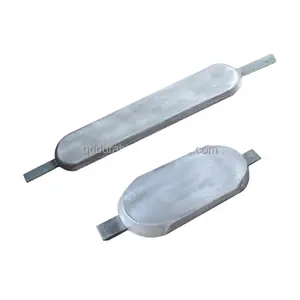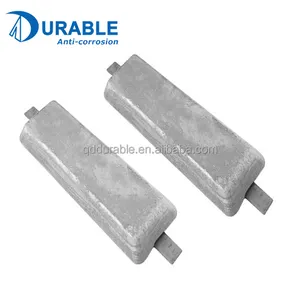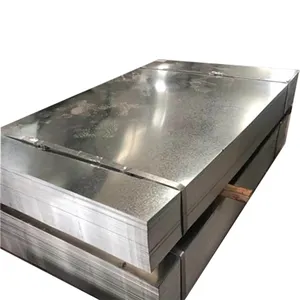Popular in your industry

















Related Searches:


























Top categories
About zinc anodes for ship ballast tank
Zinc Anodes for Ship Ballast Tanks: An Overview
Zinc anodes are essential components in the maritime industry, playing a critical role in protecting ship ballast tanks from corrosion. These anodes are specifically designed to be sacrificial, meaning they corrode instead of the tank walls, thereby extending the lifespan of the tanks.
Types and Composition
There are various types of zinc anodes for ship ballast tanks, each tailored to different environmental conditions and vessel requirements. The primary distinction lies between non-alloy and alloy zinc anodes, with each offering unique properties. Alloy anodes often contain elements like aluminum and silicon to enhance their performance in specific conditions.
Applications and Features
The application of zinc anodes goes beyond just ship ballast tanks; they are also used in other marine structures. Their features include a high degree of purity and a controlled rate of corrosion, which ensures consistent protection over time. The shape of these anodes, whether ribbon or round, is designed to maximize surface area and effectiveness.
Material Advantages
Zinc as a material for anodes is favored due to its electrochemical properties, which make it an ideal sacrificial metal. It is also relatively easy to procure and shape into anodes, making it a cost-effective solution for corrosion protection in marine environments.
Environmental Considerations
The use of zinc anodes also aligns with environmental considerations, as zinc is a non-toxic metal and its use in anodes does not harm marine ecosystems. This makes zinc anodes a responsible choice for protecting ships and marine structures.
Selection Criteria
When selecting zinc anodes for ship ballast tanks, factors such as the size of the tank, the type of water the ship will be traversing, and the expected life of the anode should be considered. It is important to choose the right type of anode to ensure optimal protection and longevity.















